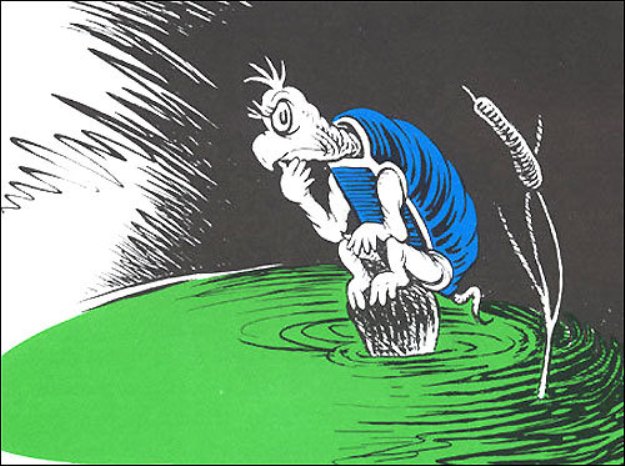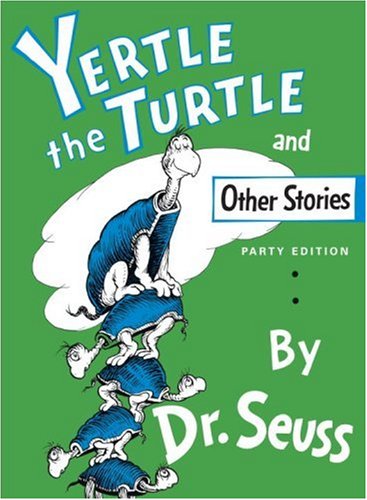The selection of Nobel Peace Prize laureate often stirs more debate than all other Nobel prizes (in chemistry, physics, medicine, literature and economics) combined. The peace prize remains an essentially political one, reflecting the reality that most conflicts — and their resolution — are largely influenced by political considerations.
Members of the Norwegian Nobel Committee, all Norwegian nationals, may not be too well known beyond their country. Yet their annual selection reverberates around the world.
Five years ago, on a visit to the Norwegian capital, I listened to a talk by Dr Geir Lundestad, a historian who is Director of the Nobel Institute in Oslo and secretary to the Norwegian Nobel Committee. He gave some interesting insights into the legacy and limitations of the prize. I share these in my latest Ravaya column (in Sinhala) just as the winners of Nobel Peace Prize 2014 are to be announced this week.
I wrote on the same topic in English in Oct 2013 (not a translation!): When Worlds Collide #87: Nobel Peace Prize – Saluting peace-makers or stirring political controversy?
හැම වසරකම නොබෙල් ත්යාගලාභීන් ගැන නිවේදනය නිකුත් කරන්නේ ඔක්තෝබර් මාසයේ.
ස්වීඩන් ජාතික නිපැයුම්කරු ඇල්ෆ්රඞ් නොබෙල්ගේ අන්තිම කැමැත්තට අනුව ක්ෂෙත්ර 5ක නොබෙල් ත්යාග පිරිනැමීම 1901දී ඇරැඹුණා. එම ක්ෂෙත්ර නම් සාහිත්යය, ලෝක සාමය, වෛද්ය විද්යාව, භෞතික විද්යාව හා රසායන විද්යාව. 1968 සිට ආර්ථික විද්යාව සඳහා ද ත්යාගයක් පිරිනැමෙනෙවා.
මේ ත්යාග අතරින් වැඩිපුරම මහජන හා මාධ්ය අවධානයට ලක් වන්නේත්, බොහෝ වසරවල ආන්දෝලනයට තුඩු දෙන්නෙත් නොබෙල් සාම ත්යාගයයි. මේ නිසා එහි ඉතිහාසය ගැන මදක් විපරම් කර බලමු.
2014 නොබෙල් සාම තා්යාගය ඔක්තෝබර් 10 වනදා නෝර්වේ රටේ ඔස්ලෝ නුවරදී නෝරිජියානු නොබෙල් කමිටුව විසින් නිවේදනය කිරීමට නියමිතයි. මේ ලිපිය ලියැවෙන්නේ එයට පෙර 2013 දක්වා සාම ත්යාග පිළිබඳ තොරතුරු පදනම් කර ගෙනයි.

නොබෙල්ගේ නිර්දේශය වූයේ සෙසු නොබෙල් ත්යාගලාභීන් තම මවුරට වූ ස්වීඩනයේ විද්වත් ආයතන විසින් තෝරන අතර සාම ත්යාගය පමණක් අසල්වැසි නෝර්වේ රටේ පාර්ලිමේන්තුව මගින් පත් කරන ස්වාධීන විද්වත් කමිටුවක් විසින් තෝරා ගත යුතු බවයි. තම රටේ පාර්ලිමේන්තුව ගැන එතරම් විශ්වාසයක් ඔහුට නොතිබෙන්නට ඇති.
ඔහු කියා තිබුණේ සාම ත්යාගය ලබන්නා ගෙවී ගිය වසරේ (හෝ වසර කිහිපයක් පුරා) ජාතීන් අතර සාමය හා සහජීවනය ප්රවර්ධනය කරන්නත්, ජාතික හමුදා විසුරුවා හරින්නත්, සාමය පිළිබඳ සමුළු පවත්වන්නත් වැඩිපුර හෝ වැදගත් කාර්ය භාරයක් ඉටු කර තිබිය යුතු බවයි.
මේ පුළුල් නිර්නායක විග්රහ කරමින් අසීරු තෝරා ගැනීම කරන්නේ නෝර්විජියානු නොබෙල් කමිටුවයි (Norwegian Nobel Committee). එහි සාමාජිකයන් නෝර්වේ රටේ සරසවි ඇදුරන්, පර්යේෂකයන් හා සෙසු විද්වතුන්. ඔවුන් නාමධාරින් නොවෙයි. එහෙත් ඔවුන්ගේ තීරණය ලොව පුරා විවාදයට ලක්වනවා.
නොබෙල් සාම ත්යාග රීතිවලට අනුව ත්යාගය එක් අයකුට, දෙදෙනකුට හෝ තිදෙනකුට දිය හැකියි. මේ ත්යාගලාභීන් පුද්ගලයන් හෝ ආයතන හෝ විය හැකියි. එක ත්යාගයක් තිදෙනකුට වැඩි සංඛ්යාවකට දිය නොහැකියි.
තනි ත්යාගලාභීන්ට අවස්ථා 64කදීත්, හවුල් ත්යාගලාභීන් දෙදෙනකුට අවස්ථා 28දීත් නොබෙල් සාම ත්යාගය ලබා දී තිබෙනවා. තිදෙනකුට සමව ලැබී ඇත්තේ දෙවතාවක පමණයි (1994 හා 2011).
List of all Nobel Peace Prize Laureates
2013දී නොබෙල් සාම ත්යාග ලාභියාට ස්වීඩන් ක්රෝනර් මිලියන් 10ක් (අමෙරිකානු ඩොලර් මිලියන් 1.4ක් හෝ ශ්රී ලංකා රුපියල් 178,861,000ක් පමණ) ලැබුණා. ඒ සමග ඩිප්ලෝමා නම් වන ත්යාග ප්රකාශයක් හා පදක්කමක් ද ලැබෙනවා. මෙය පිරිනමන්නේ වසරේ දෙසැම්බර් 10 වනදා ඔස්ලෝ නුවර නගර ශාලාවේදී. නෝර්වේ රජතුමා එහි මුලසුන හොබවනවා.
2013 ඇතුලූව මේ වන විට නොබෙල් සාම ත්යාගය පුද්ගලයන් 101 දෙනකුට හා සංවිධාන 25කට ලැබී තිබෙනවා. මුල්ම සාම ත්යාගය 1901දී හිමි වූයේ රතු කුරුස ව්යාපාරයේ ආරම්භක ස්විස් ජාතික ෂන් හෙන්රි ඩුනාන්ට්හටයි. (19 වතාවකදී ත්යාගය කිසිවකුට පිරිනැමුණේ නැහැ. ඒ එම වසරවල අදාල නිර්නායක සපුරා ගත් සුදුසු ත්යාගලාභීන් නොසිටි නිසා. පළමු හා දෙවන ලෝක යුද්ධ වකවානුවල ඇතැම් වසරවලදී සාම ත්යාග පිරිනැමීම කෙරුණේ නැහැ. අවසන් වරට සාම ත්යාගයක් නොදීමේ තීරණය සිදු වූයේ 1972දී.)
නොබෙල් සාමත්යාගය මුල් වරට කාන්තාවකට හිමිවූයේ 1905දී. බර්තා ෆොන් සට්නර් Baroness Bertha Sophie Felicita von Suttner නම් ඔස්ටි්රයානු ජාතික සාම ක්රියාකාරිනියට. 2013 දක්වා ත්යාගය ලද පුද්ගලයන් 101 අතර කාන්තාවන් 15 දෙනකු සිටිනවා.
අප්රකට නෝර්විජියානු විද්වතුන් පස් දෙනකු ලෝක සාමය ගැන ජනමතයට බලපෑම් කරන මේ සාම ත්යාග තීරණය ගැනීම සාධාරණද? මේ ප්රශ්නය විටින් විට මතු වනවා.

මීට වසර කිහිපයකට පෙර ඔස්ලෝ නුවර සමුළුවකට ගිය අවස්ථාවේ නෝර්වීජියානු නොබෙල් කමිටුවේ ලේකම් හා නොබෙල් ආයතනයේ අධ්යක්ෂ ගියර් ලූන්ඩෙස්ටාඞ් (Dr Geir Lundestad) නම් නෝර්වීජියානු ඉතිහාසඥයාට සවන් දෙන්නත්, ඔහුගෙන් ප්රශ්න අසන්නත් මට අවස්ථාවක් ලැබුණා.
ලූන්ඩෙස්ටාඞ් කීවේ සාම ත්යාගය ගැටුම් හා ප්රචණ්ඩත්වය බහුල ලෝකයක අවිහිංසාවේ හා සංහිඳියාවේ පරමාදර්ශ නියෝජනය කරන්නට ගන්නා උත්සාහයක් බවයි.
‘‘නොබෙල් සාම ත්යාගයෙන් අප උත්සාහ කරන්නේ තම රටවල හා සමාජයන්හි සාමය හා සමාජ සාධාරණත්වය උදෙසා මහත් කැපවීමෙන් අරගල කරන පුද්ගලයන් හා සංවිධානවලට ගෞරව කිරීමයි. එබඳු අය දහස් ගණනක් අතුරෙන් අපට ලැබෙන නාමයෝජනා අනුව වඩාම සුදුසු ත්යාගලාභීන් තෝරා ගැනීම අසීරු කාර්යක්.’’
දැනටමත් දේශීයව හෝ ලෝක මට්ටමෙන් හෝ යම් පිළිගැනීමකට පාත්රව සිටින ත්යාගලාභීන්ට සාම ත්යාගය අමතර ගෞරවයක් වන අතර මේ දක්වා අප්රකටව එහෙත් කැපවීමෙන් කි්රයා කරන අයට සාම ත්යාගය හරහා ලෝක ව්යාප්ත පිළිගැනීමක් ලැබෙනවා. ඒ සමග ලොවටම තමන්ගේ අරගල ප්රකාශ කිරීමේ වේදිකාවක් බිහි වන බව ඔහුගේ විග්රහයයි. බොහෝ සමාජ අරගලයන්ට ඇති තරම් ජන අවධානය යොමු කර ගැනීම අපහසු වී ඇති අද කාලයේ මෙය ඉතා ප්රයෝජනවත්.
යුද්ධය හා ප්රචණ්ඩත්වය රටවල් අතර මෙන්ම රටවල් ඇතුළත ද හමුවනවා. සාමය, සංහිඳියාව හා සමාජ සාධාරණත්වය යනු සංකීර්ණය හා බහුවිධ මානයන් ඇති ප්රවාහයන්. මේවා හරිහැටි අධ්යයනය කොට අගැයීමට ලක් කිරීම ලොකු අභියෝගයක්.
නොබෙල් සාම ත්යාගලාභීන් තෝරා ගන්නේ ලොව පුරා නාමයෝජකයන් විසින් කරන නාමයෝජනා අතරින්. නාම යෝජකයකු වීම එතරම් අපහසු නැහැ. සියළු රටවල ජාතික පාර්ලිමේන්තු මන්ත්රීවරුන්, සරසවි කුලපතිවරුන්, ඉතිහාසය, සමාජ විද්යාව, දර්ශන විද්යාව, නීතිය යන ක්ෂෙත්රවල විෂය ක්ෂෙත්රවල මහාචාර්යවරුන් සහ මීට පෙර ත්යාගය ලැබූ සියලූ දෙනාටත් තමන් රිසි පුද්ගලයකු හෝ ආයතනයක් හෝ සාම ත්යාගයට නාම යෝජනා කළ හැකියි. මේ සඳහා ක්රමවේදය නොබෙල් සාම ත්යාග වෙබ් අඩවියේ පැහැදිලිව දක්වා තිබෙනවා.
http://nobelpeaceprize.org/en_GB/nomination_intro/
‘‘නාම යෝජනාවක් කිරීම එතරම් සංකීර්ණ නැහැ. එසේම නාම යෝජනාවකට පාත්ර වීම සංකේතාත්මකව එතරම් වැදගත් කරුණක් ද නොවෙයි’’ ලූන්ඩෙස්ටාඞ් කියනවා. සමහර දෙනා තම හිතවතුන් හරහා වාර්ෂිකව තමන්ව නාම යෝජනා කර ගන්නවා. නාම යෝජනා භාර ගන්නා අවසන් දිනය වසරේ පෙබරවාරි 1. (2014 සඳහා නාමයෝජනා 278ක් ලැබුණා. එයින් 47ක් සංවිධාන.)
නාම යෝජිත පුද්ගලයන් හා ආයතනය ගැන ස්වාධීන විමර්ශන කිරීමට නොබෙල් කමිටුවේ කාර්ය මණ්ඩලයක් සිටිනවා. ඔවුන් නාම යෝජනාවල රහසිගත බව රැුක ගනිමින් තොරතුරු සොයා බලනවා. නොබෙල් කමිටුව විද්වත් උපදේශකයන් කිහිප දෙනකුගේ මත ද විමසනවා.
එහෙත් අවසාන තීරණය තනිකරම කමිටු සාමාජිකයන්ගේ. නෝර්වීජියානු පාර්ලිමේන්තුවට හෝ බලයේ සිටින රජයට හෝ මේ ක්රියාදාමයට බලපෑම් කළ නොහැකියි. එය ලොවට නිවේදනය කරන්නේ කමිටුවේ ලේකම්වරයා.
කෙතරම් සුපරීක්ෂාකාරිව හා අපක්ෂපාතව ක්රියා කළත් නොබෙල් සාම ත්යාගයට පරිපූර්ණ වාර්තාවක් නැති බව ලූන්ඩෙස්ටාඞ් අවංකව පිළිගන්නවා.
සමහර ත්යාගලාභින් පිළිබඳව ලෝක ව්යාප්ත ජනප්රසාදය මතු වුණා. 1967 අමෙරිකානු කළු ජන අයිතීන්ට අරගල කළ මාටින් ලූතර් කිං, 1979 තෙරේසා මවුතුමිය හා 1993 නෙල්සන් මැන්ඩෙලා ඒ ගණයට අයිතියි.
ලෝකයේ සමහර රටවල ‘ත්රස්තවාදී’ ලේබලය අලවනු ලැබූ පලස්තීන විමුක්ති ව්යාපාරයේ නායක යසර් අරෆත්ට 1994 ත්යාගයේ තුනෙන් එකක් හිමි වුණා. ඒ ඊශ්රායල අගමැති යිට්සක් රේබින් හා විදේශ ඇමති ෂිමෝන් පෙරස් සමග හවුලේ. මැදපෙරදිග සාමයට ඔවුන් ගත් උත්සාහයන් මේ ත්යාගයට හේතු වුණා.
එහෙත් මෑත වසරවල සමහරත්යාගයන් ප්රබල විවේචනයට ලක් වුණා. මුල් ධූර කාලය සඳහා තේරී පත් වූ අමෙරිකානු ජනාධිපති බරක් ඔබාමාට ධූරයේ මාස කිහිපයක් කටයුතු කළ පසු 2009 ත්යාගය පිරිනැමීම බොහෝ දෙනාගේ විමතියට ලක් වුණා. එයට පෙර 2002දී ත්යාගයෙන් පිදුම් ලද හිටපු අමෙරිකානු ජනාධිපති ජිමී කාටර්ට එය ලැබුණේ ජීවිත කාලයක් සැබෑ මෙහෙවරක් කළ පසු වයස 82දී.
ආයතන හා සංවිධානවලට සාම ත්යාගය ලැබුණු විට එය එතරම් ආන්දෝලනයට තුඩු දෙන්නේ නැහැ. ලෝක රතු කුරුස සංගමයට (ICRC) එය තෙවරක් ලැබී තිබෙනවා (1963, 1944, 1917). සරණාගතයන් පිළිබඳ එක්සත් ජාතීන්ගේ සංවිධානයට (UNHCR) එය දෙවරක් පිරිනැමුණා (1954, 1981). පසුගිය දෙවසරේම ත්යාගය ලැබුණෙත් ආයතනවලටයි. 2012දී යුරෝපා සංගමයටත්, 2013දී රසායනික අවි නීති විරෝධී කිරීම සඳහා සංවිධානයටත් (Organization for the Prohibition of Chemical Weapons, OPCW).
නොබෙල් සාම ත්යාග ඉතිහාසයේ බරපතලම දෝෂය ලෙස සැලකෙන්නේ 20 වන සියවසේ අහිංසාවාදයේ ප්රතිමූර්තිය වූ මහත්මා ගාන්ධිට ත්යාගයක් නොලැබීමයි. කිහිප විටක්ම (1937, 1938, 1939, 1947) ඔහු නාමයෝජනා ලැබුවත් එවකට සිටි නොබෙල් ත්යාග කමිටු ත්යාගයක් දුන්නේ නැහැ.
1984 ජනවාරි 30 වනදා ඔහු සාහසිකයකුගේ වෙඩි පහරින් මිය ගිය පසු යළිත් නාමයෝජිත වූවත් ත්යාගය ලැබුණේ නැහැ. මේ දෝෂය යම් තරමකට හෝ නොබෙල් කමිටුව පිළිගත්තේ 1989දී දලයිලාමා තුමාට ත්යාගය පිරිනැමූ අවස්ථාවෙයි.
Mahatma Gandhi, the Missing Laureate, by Øyvind Tønnesson, Nobelprize.org Peace Editor, 1998-2000
යුරෝපීය හා උතුරු අමෙරිකානු සම්භවයක් තිබූ පිරිමි ත්යාගලාභීන්ට බොහෝ කොටම සීමා වී තිබූ සාම ත්යාගය ගෝලීයකරණය වීම ඇරැඹුණේ 1960 ත්යාගය සමගයි.
දකුණු අප්රිකාවේ ජාතීන් අතර සමානාත්මතාවයට ගෙන ගිය අඩසියවසක අරගලයට නන් අයුරින් නායකත්වය දුන් ඇල්බට් ලූතුලි (1960) හා ආච්බිෂොප් ඩෙස්මන්ඞ් ටූටූ (1984) ත්යාගලාභීන් වීම ඔවුන්ට ලෝක ව්යප්ත ප්රතිරූපයක් ලබා දුන්නා. 1990-92 කාලය තුළ වර්ණභේදවාදය නිමා කිරීමට මහත් කැපවීමෙන් හා සීරුවෙන් ක්රියා කළ දකුණු අප්රිකාවේ අවසාන සුදු ජනාධිපති එෆ්. ඩබ්ලියු. ඩික්ලර්ක් හා නෙල්සන් මැන්ඩෙලාට 1993 ත්යාගය සම සේ පිරිනැමුණා.
‘‘දකුණු අප්රිකාවේ සම අයිතීන් දිනා ගත්තේ ඒ සඳහා ඉමහත් කැපවීමෙන් ක්රියා කළ බොහෝ දෙනෙකුගේ උත්සාහයන් නිසයි. ඔවුන් කිහිප දෙනෙකුට සාම ත්යාග දීමෙන් අප කළේ ඒ අරගලයට සහයෝගයක් දීම පමණයි,’’ ලූන්ඩෙස්ටාඞ් කියනවා.
සමහර අවස්ථාවල සාම ත්යාගලාභියා මෙන්ම එය පිරිනැමුණු වසර ද තීරණාත්මක වුවා. 1981දී ඇරැඹි පෝලන්ත කම්කරු ප්රජාතන්ත්ර අයිතීන් දිනා ගැනීමේ අරගලයට නායකත්වය දුන් ලෙක් වවෙන්සාට (Lech Walesa) 1983 ත්යාගය හිමිවුණා. ටිකෙන් ටික නැගී ආ ජන බලවේගයන් බලවත් වී නැගෙනහිර යුරෝපයේ කොමියුනිස්ට් ඒකාධිපති පාලන බිඳ වැටුණේ 1989-90දී. එයට වාවෙන්සාගේ සාම ත්යාගය ද යම් තල්ලූවක් දෙන්ට ඇති.
එසේම පෙරෙස්ත්රොයිකා (ප්රතිසංස්කරණ) හා ග්ලාස්නෝස්ට් (විවෘත බව) හරහා දරදඬු සෝවියට් පාලන තන්ත්රය නිමා කළ මිහායෙල් ගොර්බචෝෆ්ට 1990 ත්යාගය පිරිනැමුණා.
නොබෙල් සාම ත්යාගය සමාජවාදී පිළට එරෙහි වූවක් හා ධනවාදයේ අතකොළුවක් යන මතය වඩාත් ප්රබලව මතුව ආයේ මේ ත්යාගවලින් පසුවයි. එහෙත් ත්යාගයට දේශපාලන මතවාද ඉක්මවා යන මානුෂික හා මානව හිමිකම් දැක්මක් ඇතැයි ලූන්ඩෙස්ටාඞ් පෙන්වා දෙනවා.
දකුණු අප්රිකාවට අමතරව නැගෙනහිර ටිමෝරය, බුරුමය යන රටවල ද දේශපාලන ප්රතිසංස්කරණවලට සාම ත්යාගය යම් පමණකට උපකාර වූවා යයි කිව හැකියි.
ගැටුම් හා ප්රචණ්ඩත්වයට තුඩු දෙන සමාජ ආර්ථික සාධකවලට වැඩි අවධානයක් යොමු කිරීම 2000න් පසු පිරිනැමුණු සාම ත්යාගවල විශේෂත්වයක්. 2004දී කෙන්යාවේ සමාජ ක්රියාකාරිනී හා පරිසරවේදීනී වංගාරි මාතායිට (Wangaari Mathaai) ත්යාගය දුන්නේ අප්රිකාවේ පාරිසරික සංරක්ෂණයට කාන්තාවන් පෙළගැස්වීමේ පුරෝගාමී මෙහෙවර සඳහායි.
2006 දී බංග්ලාදේශයේ ආචාර්ය මොහමඞ් යුනුස් හා ඔහු ඇරැඹූ ග්රාමීන් බැංකුවට (Dr Muhammud Yunus and Grameen Bank) ත්යාගය ලැබුණේ දුගී බව දුරු කිරීමට ක්ෂුද්රණය හා ප්රජා සංවර්ධන කටයුතු පිළිබඳ ආකෘතියක් නවෝත්පාදනය කිරීම නිසායි.
නොබෙල් ත්යාග ඉතිහාසයේ මේ දක්වා ලාංකිකයකුට කිසිදු ත්යාගයක් හිමිවී නැහැ. එබන්දක් පිළිබඳ මෙරට ප්රචලිත දුර්මතයක් පහදා දිය යුතුයි.
2007 සාම ත්යාගය සම සේ බෙදී ගියෙ දේශගුණ විපර්යාසය පිළිබඳ එක්සත් ජාතීන්ගේ විද්වත් මඩුල්ල (Inter-governmental Panel on Climate Change, IPCC) හා හිටපු අමෙරිකානු උපජනාධිපති හා දේශගුණික ක්රියාකාරික ඇල් ගෝටර්ට (Al Gore). ත්යාගය ඔස්ලෝ නුවරදී ලබා ගත්තේ ෂඡුක්ක් සභාපති ඉන්දියානු විද්යාඥ ආචාර්ය රාජේන්ද්ර පචෞරි (Dr Rajendra Pachauri) හා ඇල් ගෝර් දෙපළයි.
IPCC මඩුල්ලේ ලොව නන් රටවලින් විද්වත් බව මත තෝරා ගත් විද්යාඥයන් 2,500කට වඩා සිටිනවා. මේ සියලූ දෙනාට ඔස්ලෝ යාම ප්රායෝගික නොවූ නිසා එවකට එහි සිටි උප සභාපතිවරුන් සිවු දෙනාටත්, කණ්ඩායම් නායක විද්යාඥයන්ටත් විශේෂ ආරාධිතයන් ලෙස ත්යාග ප්රදාන උත්සවය ඇරැයුම් කෙරුණා. ඒ අනුව එවකට IPCC උපසභාපතිවරයකු වූ ලාංකික ඉංජිනේරු හා ආර්ථික විද්යාඥ ආචාර්ය මොහාන් මුණසිංහත් එහි ගියා.
එහෙත් උත්සවයට සම්බන්ධ වූ පමණින් ඔහු ත්යාගලාභියෙකු යයි කීම වැරදියි. මොහාන් මුණසිංහ 2007 නොබෙල් සාම ත්යාගයේ සමලාභියකු වීද යන්න මා 2008 සැප්තැම්බරයේ නොබෙල් ආයතනයට ගිය අවස්ථාවේ එක එල්ලේ විමසුවා. 2007 ත්යාගය පාර්ශවයන් දෙකක් අතර සම සේ බෙදී ගිය බවත්, එනම් ඇල් ගෝර් හා IPCC ආයතනය පමණක් බවත් ඔවුන් තහවුරු කළා.
මා හඳුනන හා ගරු කරන ආචාර්ය මුණසිංහට මේ ගෞරවය නැති වුණාට ලොව විවිධ රටවලින් ලැබුණු ගෞරවයන් රැසක් තිබෙනවා. ඔහු මෙරට සිටින කීර්තිමත් විද්වතකු බවට විවාදයක් නැහැ.



